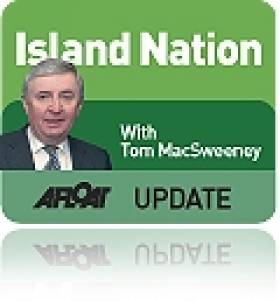Displaying items by tag: MacSweeney
Is 'Marine' Being Got At Again?
My view was that it was a substantial change and that the pre-Election pledge of Fine Gael to co-ordinate all maritime aspects under one Department was being delivered upon and I welcomed the appointment.
But this week it has been pointed out that, while the names of other Government Departments have already been changed to their new designations under the Ministerial appointments announced in the Dail, this has not been done where the marine is concerned. The Department of the Taoiseach's website lists Simon Coveney's Department as "Agriculture, Fisheries & Food" and the Department is so far retaining that title. Its press releases have describe Coveney as "Minister for Agriculture, Food and Marine," not what the Taoiseach announced in the Dail.
This is not pedantic, but a reasonable issue to raise bearing in mind past marine experience. When Bertie Ahern abolished the Department of the Marine and assigned duties to the "Minister for Transport and Marine" in the last Government, top civil servants in that Department removed "marine" from its title. When I questioned that, I was told that a meeting of those officials had been held and that decision had been made.
So, I asked the Department of the Taoiseach this week, what exactly is the title of Simon Coveney's department. To the time of writing this column, no response has been received.
When he was Fine Gael Leader, Enda Kenny told me in a radio interview of his pride in the maritime connections of his family which had been involved in the lighthouse service.
I asked the Department of "Agriculture, Fisheries and Food" press office why "marine" was listed as third in the Minister's role rather than second, as described in the Dail. I was told that arrangements and decisions and an "SI" - "statutory instrument" - were awaited.
I will be interested to see how long that takes..
























































